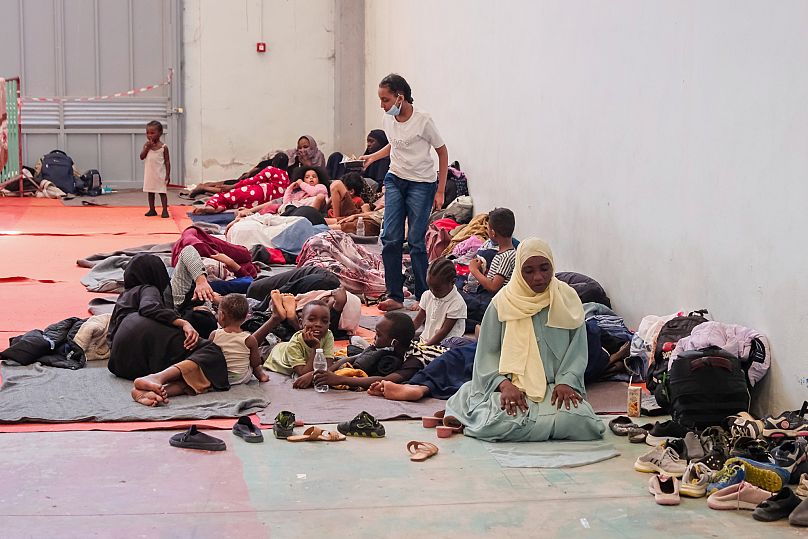Greece's government said on Wednesday it is temporarily suspending asylum applications for migrants arriving in the country by sea from North Africa, following a spike in arrivals from Libya.
More than 2,000 migrants have landed on the island of Crete since the weekend, according to coastguard figures, bringing the total number of arrivals this year to over 10,000.
Speaking in parliament, Prime Minister Kyriakos Mitsotakis said the government also planned to build a detention centre on Crete for migrants and was seeking direct collaboration between the Libyan and Greek coastguards to turn back boats leaving the North African country.
"This emergency situation clearly demands emergency measures," Mitsotakis told lawmakers on Wednesday.

"The Greek government has decided to inform the European Commission that … it will suspend the processing of asylum applications — for an initial period of three months — for those arriving by sea from North Africa."
The suspension will apply only to migrants reaching Greece by sea.
Migrants entering the country illegally will be detained, Mitsotakis said.
"The Greek government is sending a firm message: the route to Greece is closing, and that message is directed at all human traffickers," he said.
Overnight, a fishing trawler carrying 520 migrants from Libya was intercepted south of Crete.
A bulk carrier that took all of the migrants onboard was rerouted to the port of Lavrio, near Athens, so that the migrants could be detained in a mainland facility, authorities said.

Greece continues to be a key entry point to the EU for people escaping conflict and hardship in the Middle East, Africa and Asia.
Arrivals surged last year, with over 60,000 migrants landing in Greece — the majority by sea — compared to around 48,000 in 2023, according to UN refugee agency data.
By mid-June 2025, Greece had recorded 16,290 arrivals, over 14,600 of which were by sea.
With Greek authorities stepping up patrols along the eastern maritime border with Turkey, traffickers appear to be increasingly choosing the longer and more dangerous route across the Mediterranean from North Africa, using larger boats capable of carrying more people.







